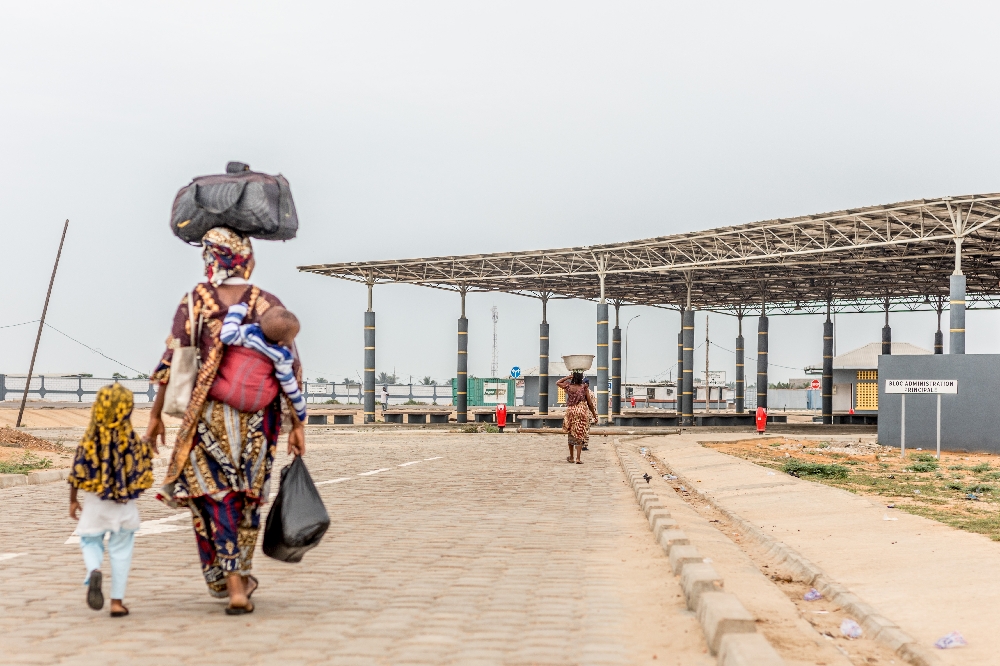When the global pandemic forced Togo’s government to close its land borders, taxi driver Kossigan lost his lucrative business ferrying people across the frontier.
Now like many others who lived off frontier trade, he is still waiting for the Togo’s borders to reopen while earning his keep as a parking lot attendant.
“Covid-19 has killed off our business. Some of my colleagues got sick by doing nothing, others have returned to their villages,” Kossigan said.
Togo – a small French-speaking West African state squeezed between Ghana and Benin – has been living under emergency health restrictions since April last year.
While the official figures show a low level of coronavirus infections at 13 000 cases and 125 deaths, Togo has kept up tight restrictions and the economy has been hit hard.
Economic growth was estimated at 1.8% for 2020 compared to a forecast of 5.5%, according to official figures.
Cross-frontier trade is essential for a small, agriculture-dependent economy like Togo’s, with business coming from across neighbouring West African states like Ghana, Benin and Ivory Coast.
Togo’s western and eastern borders are only 50 kilometres (31 miles) apart at its southern tip.
Burkina Faso, Ghana and Benin were among the top five destinations for Togo’s exports in 2019, according to the World Trade Organisation (WTO).
“My business is practically dead, I am living a terrible situation since they closed the frontiers as most of my clients come from outside,” said Ablavi, 52, a cloth wholesaler in Lome’s main market.
In the next stall, Edith, a cosmetics seller, agreed the situation was critical.
“The authorities really have no pity on us,” she said. “Air travel restarted in August, so why are the land borders still closed? It is really unjust.”
All but dead
In Deckon, a normally bustling commercial centre in the heart of Lome with dozens of boutiques, banks and companies, business owners are just as puzzled.
“I could never have imagined this situation. Everything is almost dead, as most of our clients come from outside. It really is time to reopen the frontier,” said Razack, a mobile phone salesman.
Frustrations are growing too for hotel owner Evariste Govi who let go of half of the hotel staff six months ago.
“I really have the impression that the authorities must have their own reasons for this, because the number of deaths from coronavirus are far less than those from malaria,” Govi said.
“At this pace, I will have to shut the place up by July.”
Some business associations and trade organisations are already warning of worse to come if the borders stay closed.
“We have alerted the government several times about the situation in the country. We have to reopen the borders quickly and reduce taxes,” said Emmanuel Sogadji, president of a consumer association in Togo.
The World Bank last year said in a report that the combination of closed borders, social distancing measures and restrictions on travel had delivered a heavy blow to Togo’s economic activity.
The bank had approved a $70 million credit for Togo to help revive its economy.
Asked repeatedly about reopening the border, the government has kept to its position.
“The land borders will be reopened when it is necessary,” Ihou Wateba, higher education minister who is also in charge of the coronavirus response, told a private radio channel earlier this year.
“Should we reopen the borders for fun or keep the current state of affairs? The situation is under control, that is what is important,” said one member of the government’s scientific advisory council.
Togolese authorities want to assure the population that the economy has shown itself to be “resilient” in the face of the crisis.
“According to the outlook for 2021, economic activity growth should accelerate by 4.8 percent,” Economy and Finance Minister Sani Yaya said in April on public television.
But he did not say whether that would be done with the borders open or closed.
Source: AFP


